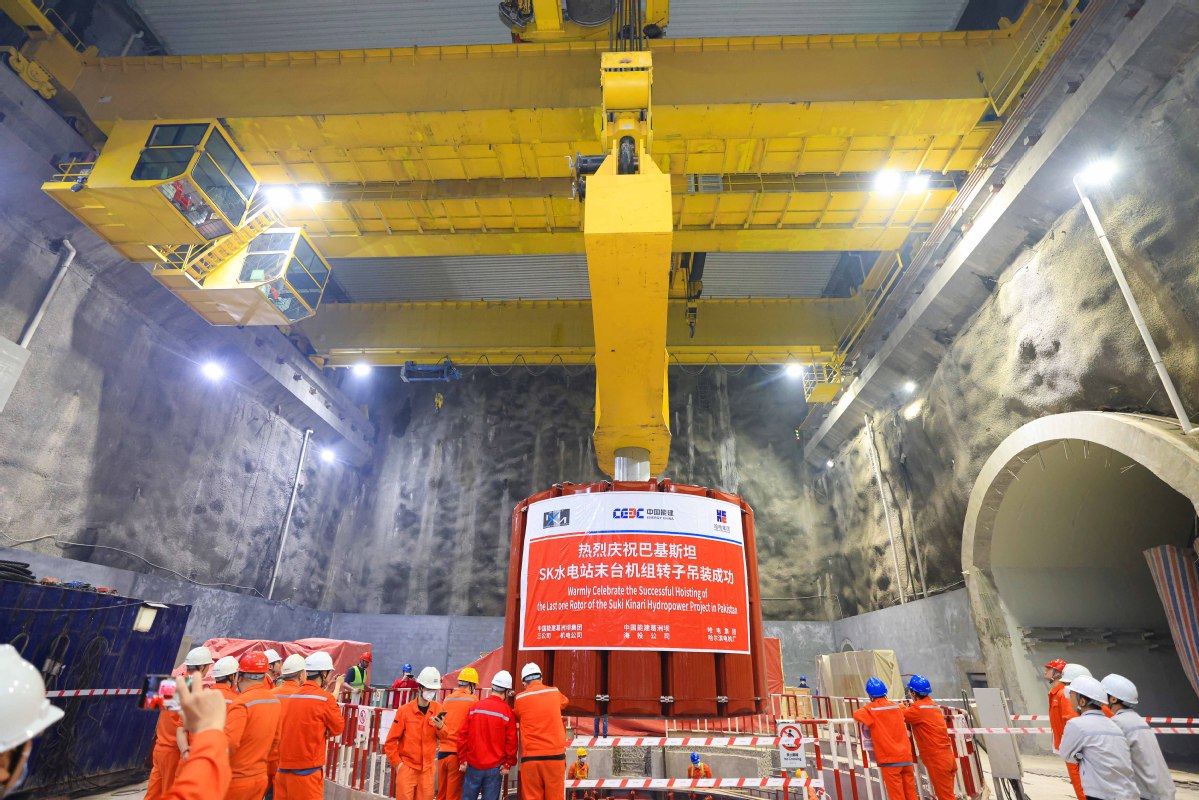Transformative achievements mark Belt, Road's first decade
Through enhanced cooperation and people-to-people exchanges, the initiative has built on the vision of a global community with a shared future


Global well-being
"The Belt and Road cooperation has created more jobs and provided more vocational training and educational opportunities for people in partner countries, and thus improved their livelihoods in the process of development," said Anna Malindog-Uy, vice-president of the Manila-based think tank Asian Century Philippines Strategic Studies Institute.
For Khairul Ikmal, a villager in Malangnengah, Purwakarta Regency of Indonesia, the Jakarta-Bandung High-speed Railway under the BRI cooperation changed his life as an assembly line worker in a shoe factory. He was recruited in 2019 and learned to become a welder after five months of training.
The 142-km railway has handled over 1 million passenger trips, brought smoother and more efficient journeys, and provided many other villagers with employment as well as incomes. Ikmal has fulfilled his long-held dream of owning a motorcycle thanks to his new job.
"Since the railway project is complete now, I plan to run a welding studio and use the technology I have learned over the past four years to make products such as guardrails and window guards," he said.
According to statistics provided by Kereta Cepat Indonesia China, a joint venture consortium between Indonesian and Chinese firms that constructs and runs the HSR, 45,000 Indonesian employees were trained on-site during the railway's construction. As the first overseas HSR project that fully uses Chinese railway systems, technology, and industrial components, the project has created about 51,000 jobs in Indonesia.
Landmark projects like these in the region also cover a wide range of areas beyond transport.
In the past decade, BRI cooperation has featured green and high-quality development and has brought socioeconomic benefits to regional economies, improving the lives of local people and infrastructure and offering opportunities for further growth in the green sector, experts said.
Abid Qaiyum Suleri, executive director of the Sustainable Development Policy Institute, an Islamabad-based think tank, said China has not only helped Pakistan overcome a severe energy crisis, but also assisted in promoting green development.
In northwest Pakistan, the construction of the Suki Kinari hydropower project has been making significant progress. With a total installed capacity of 884 megawatts, it is expected to generate some 3.21 billion kilowatt-hours of clean electricity annually, replacing 1.28 million metric tons of coal and cutting 2.52 million tons of carbon dioxide emissions per year.
Xinhua



































